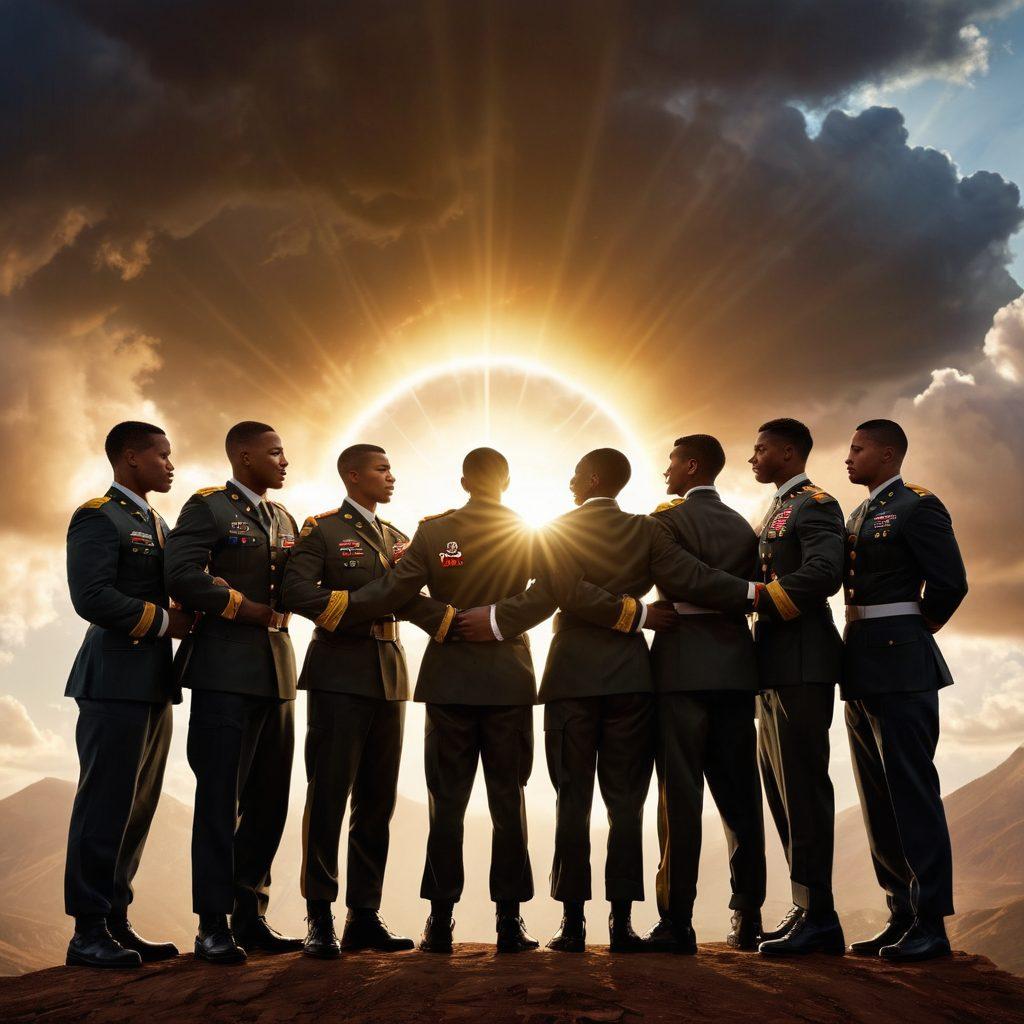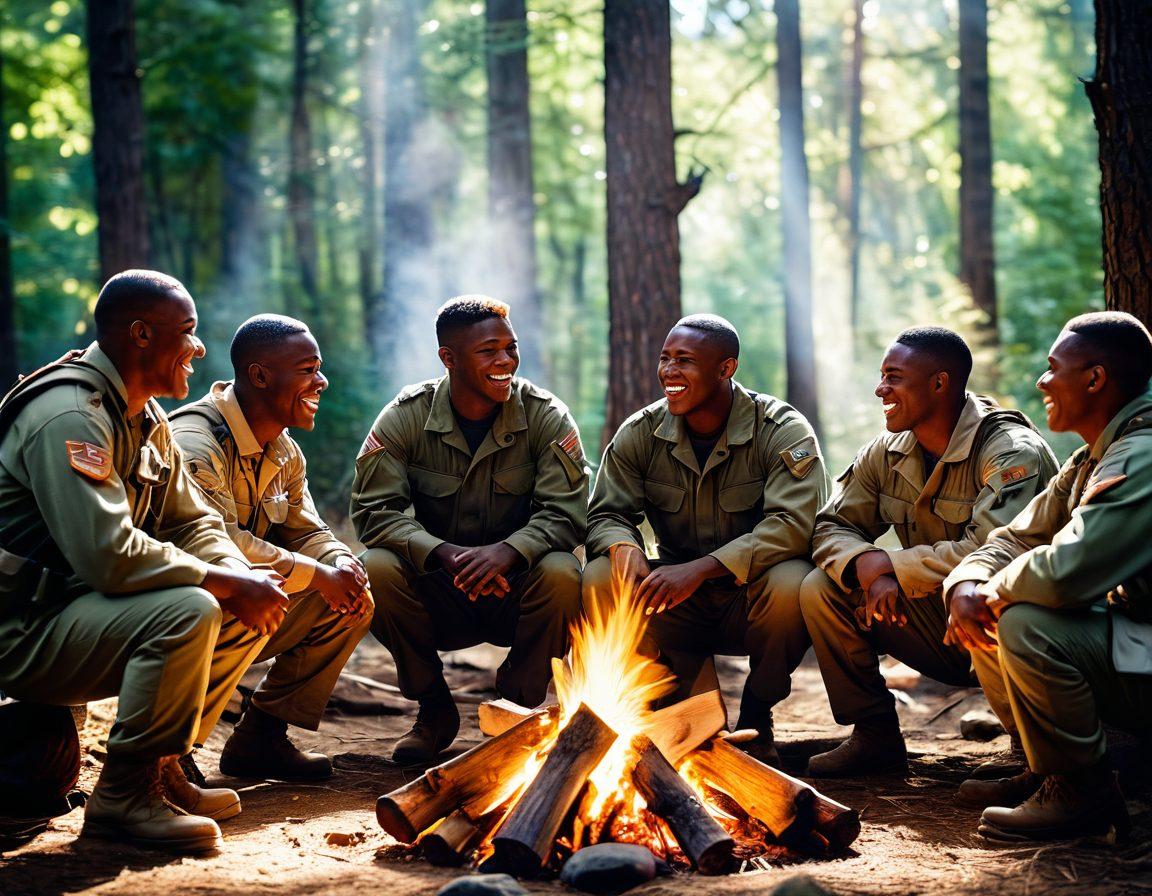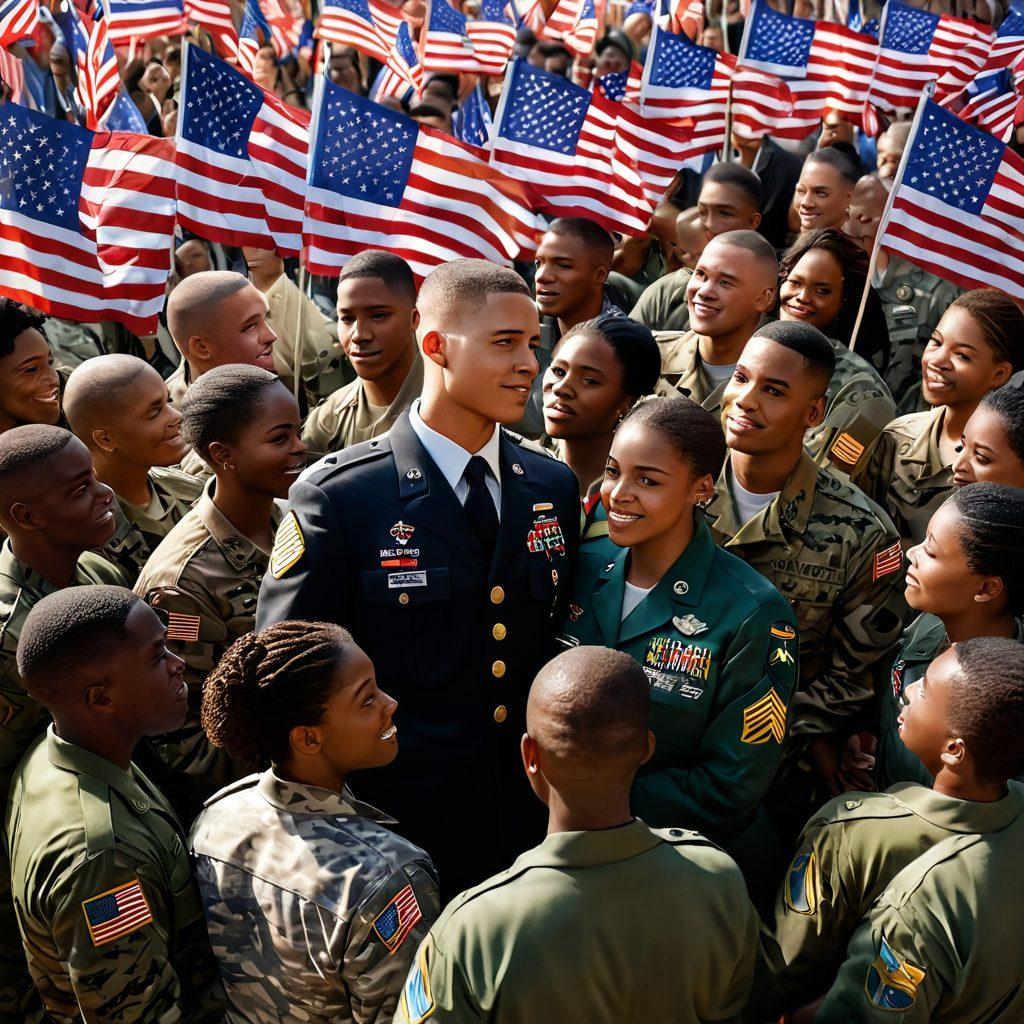Building Bonds of Valor: How Peer Support Strengthens Our Troops
The sound of boots marching in unison symbolizes more than just a military force; it reverberates the values of valor, sacrifice, and camaraderie that define our troops. Every service member carries the weight of their mission, but none carry it alone. At the heart of this journey lies a crucial component that bolsters resilience—peer support. This transcends mere assistance; it unfolds as a vibrant tapestry of empathy and engagement, woven by those who understand the profound challenges of military life. Together, these individuals form a support system that can transform struggles into strength, showcasing the true spirit of heroism that binds them together.
Imagine for a moment, a soldier returning home from deployment. The emotional scars often remain long after the physical ones have healed. It’s here that peer support steps in, acting as a guardian of mental, emotional, and social wellbeing. As one veteran aptly noted, 'It’s the shared stories, the collective struggles that help us heal.' In moments of vulnerability, finding someone who has walked a similar path ignites hope and fosters healing. This powerful connection not only reassures military members that they are not alone but also celebrates the uniqueness of their experiences, fostering a culture of compassion and understanding.
The role of peer support in the military cannot be overstated; it fortifies the spirit of patriotism and reinforces bonds that are often forged under the most strenuous conditions. Non-profit organizations dedicated to outreach play a critical role in promoting these connections. They create safe spaces where service members can engage, share, and grow, contributing to an atmosphere enriched with affection and fellowship. By providing a platform for dialogue, these organizations empower heroes to reclaim their narratives and reaffirm their commitment to resilience, creating a ripple effect of support that extends beyond individual stories.
Peer support also embodies the essence of active engagement—when individuals come together, they foster a community grounded in shared experiences and mutual understanding. The act of reaching out can sometimes seem daunting; however, it is essential to remember that offering or receiving help doesn’t signify weakness. Instead, it's an embodiment of strength and a testament to the heroism that defines military life. Every conversation shared, every story told, solidifies those bonds and reaffirms the unyielding support that service members give to one another in their most trying times.
It’s important to recognize that building these connections doesn’t stop at the individual level; it cultivates a larger movement of compassion that enriches our entire society. Through philanthropy and active support initiatives, communities can join the efforts to strengthen our troops and their families. Every act of kindness, no matter how small, echoes the profound sacrifice that these heroes make. So, let us ask ourselves: in what ways can we contribute to this collective support system? By embracing peer support, we actively contribute to a culture of healing and resilience, ensuring that every service member knows they are valued and supported throughout their journeys.
Creating a Culture of Compassion: How Camaraderie Boosts Troop Strength
In the heart of every military force lies a unique bond: the camaraderie that develops among service members during their journeys together. This collective experience is often forged in the face of unimaginable challenges, where affection and empathy become the lifelines that help troop members overcome adversity. As we explore the importance of creating a culture of compassion, we uncover how peer support not only boosts morale but also strengthens our troops in ways traditional training cannot. But what fuels this deep sense of connection amongst soldiers?
Imagine a soldier in the middle of a bustling deployment—surrounded by fellow service members, yet feeling completely alone. The reality is that many experience this paradox. Can we, as a society, fully appreciate the sacrifices made by our troops? Through peer support, a profound support system emerges, where soldiers can share their fears, triumphs, and everyday struggles. This engagement fosters a sense of belonging that transcends rank and position, echoing the idea that true heroism is not just about courage on the battlefield, but also about the relationships built in the quiet moments shared between comrades.
Peer support is much more than emotional assistance; it’s an active demonstration of patriotism. When soldiers lean on one another, they cultivate a safe space where they can express their vulnerabilities without fear of judgment. Organizations—often non-profit—dedicated to outreach and philanthropy, have recognized the power of this camaraderie. They encourage service members to participate in activities that enhance emotional resilience while also offering avenues for holistic help, creating an environment where long-term mental health is prioritized alongside physical preparedness.
Consider a poignant quote from a veteran, "The strongest shield we have in battle is not only our training but the brothers and sisters beside us." These words speak to the sheer valor that arises from unity. As individuals come together in adversity, they become guardians of one another's well-being. Through outreach initiatives and engagement programs, personal stories of sacrifice and bravery are shared, showcasing how peer interaction can bolster confidence and foster a sense of purpose even in the toughest times.
In conclusion, building a culture of compassion within our military can transform the experience of service members significantly. As supporters of our troops, it’s essential to recognize the role we play in facilitating this camaraderie. Whether it’s through volunteering for a non-profit, participating in community outreach, or simply offering a kind word, every effort counts. Together, we can help forge unbreakable bonds that not only enhance the strength of our troops but also honor the heroism that resides within each individual soldier. What's your role in promoting this culture of compassion?
From Sacrifice to Solidarity: The Impact of Philanthropy on Our Service Members
In a world where uncertainty reigns and challenges seem insurmountable, the unconditional affection of a peer support system can illuminate the darkest paths of our brave military force. Many of us admire the heroism of our service members, but few truly grasp the magnitude of their sacrifice. When they return home, the weight of their experiences can be astounding. This is where the power of philanthropy comes into play, creating a bridge between those who serve our country and the organizations that support them, fostering solidarity that helps them transition back into civilian life.
Peer support seems to originate from the heart, resonating with a simple yet profound question: What if we stood together as a collective force? The answer lies in witnessing the camaraderie that develops when service members lean on each other during times of need. It’s not just about sharing stories of valor; it’s about creating a support system that recognizes and empathizes with the unique challenges faced by our troops. Through outreach programs and non-profit organizations, we can ensure that compassion extends beyond military walls into our communities.
Philanthropy plays a pivotal role in establishing this support. These generous acts can range from fundraising events to community engagement that rallies around our service members, reinforcing the vital need for assistance. Picture a local non-profit hosting a barbecue for veterans; the laughter, stories, and shared meals not only foster connection but also revive a sense of purpose and belonging. Such acts remind our service members that their sacrifices are remembered and appreciated, fueling their spirits as they navigate life after service.
However, how do we ensure these philanthropic efforts resonate deeply with our troops? The answer lies in cultivating empathy—understanding their journey and encouraging open dialogue. This can be as simple as inviting veterans to share their experiences or creating an environment where their voices are heard and valued. By amplifying their narratives, we bolster the warrior’s spirit and cultivate a culture of mutual support that transcends individual struggles, uniting us in a shared mission of care and encouragement.
In closing, it’s essential to recognize that every act of generosity towards our service members is a step towards dismantling the barriers they face upon returning home. We must champion the idea that every bit of help counts and that together, we can create a stronger network of support. By harnessing the power of philanthropy and peer support, we honor their sacrifices and champion their journeys, all while strengthening the bonds of valor within our communities. How can you engage in such efforts and showcase your own brand of patriotism today?


